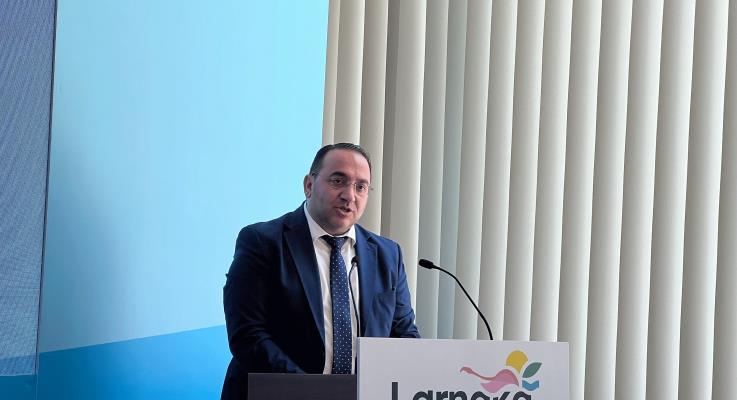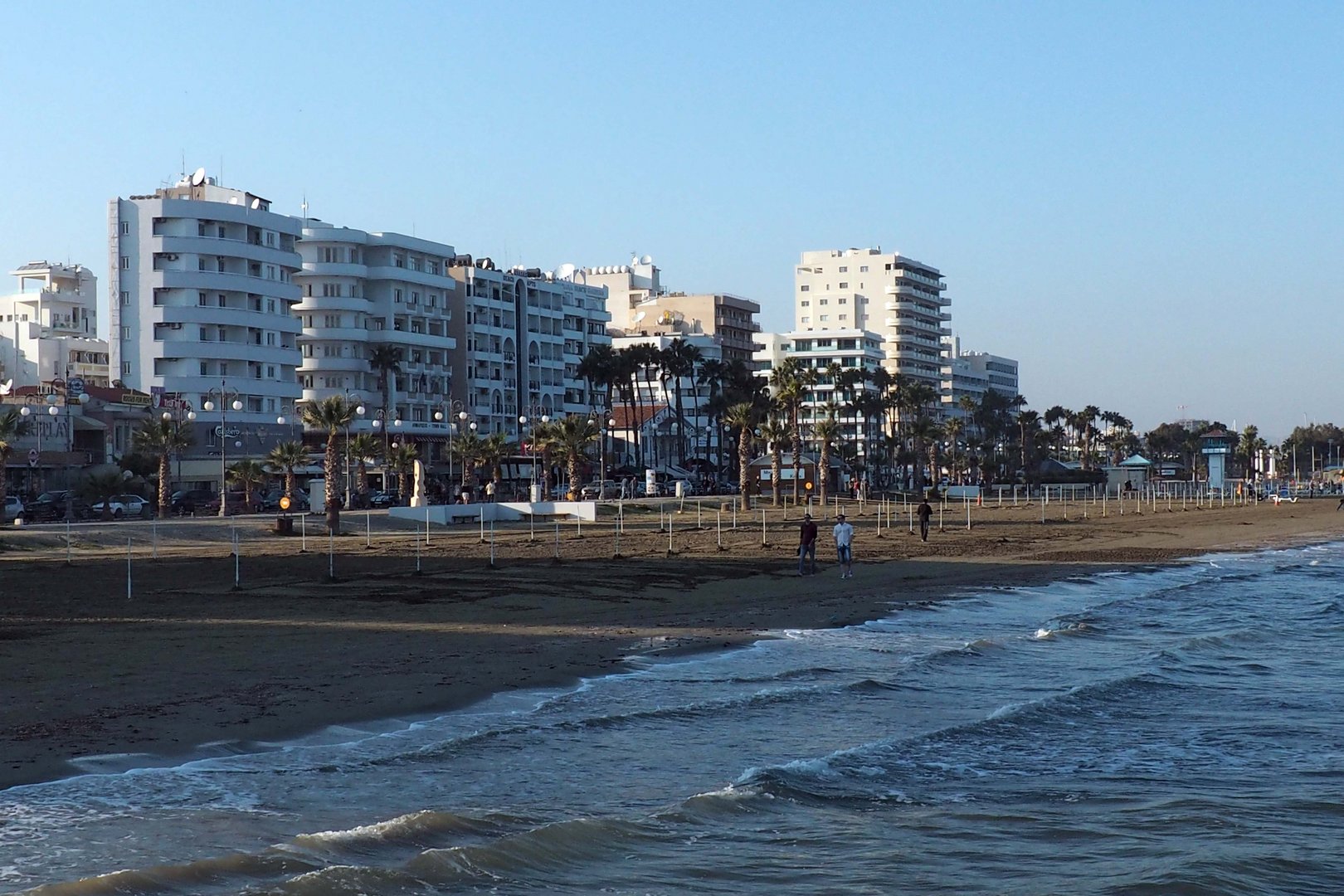Larnaca on Friday unveiled a new corporate identity, marking a pivotal moment for the city’s tourism, according to Deputy Minister of Tourism Kostas Koumis.
He emphasised that the rebranding aims to encapsulate the authentic essence of Larnaca, showcasing its rich history, local gastronomy, and sustainable tourism practices.
In his welcoming remarks at the event organised by the Larnaca Tourism Development Company (Etap), Koumis declared that the day represented “a milestone for the tourism sector of the city and the province of Larnaca.”
He stated that through this rebranding, Etap aims to present “a new, distinctive image of the tourism product of this beautiful destination with a fascinating history.”
Koumis highlighted the necessity of creating a new corporate identity in an increasingly competitive and evolving tourism landscape. He described the newly designed logo as “smart,” noting its functionality and versatility.
“The new logo presents smartly and functionally those elements that are interwoven with the destination. It is functional and easy to use, in the sense that it can be reproduced in various forms,” he explained.
Moreover, Koumis stressed that rebranding extends beyond merely changing a logo or slogan. “Rebranding is not just changing a logo or an advertising slogan; it is much more,” he said.
“It is the collective effort and willingness to reboot, so it is important as an effort to be embraced by all those who make up the tourism ecosystem of the destination,” he added, calling for the alignment of the entire tourism ecosystem with this new vision.
Referring to Larnaca’s historical and touristic significance, Koumis noted that it is “among the very few cities in the world with a continuous history of more than 4,000 years.”

This long history is evident through its museums, archaeological sites, architecture, and traditions. He also pointed out the city’s advantageous proximity to both the international airport and port, enhancing its appeal as a travel destination.
Larnaca boasts a wealth of attractions, including important monuments such as the St. Lazarus Church, the Hala Sultan Tekke, the ancient settlement of Choirokoitia, and picturesque mountainous communities like Lefkara.
These, Koumis said, “make Larnaca an attractive destination for every visitor.” He also highlighted the recent increase in hotel developments, indicating a strong growth trajectory for the city’s tourism sector.
Addressing recent setbacks, Koumis acknowledged the “negative development of the last few days in relation to the unified development of the port and marina of Larnaca.”
However, he assured that this would not hinder the city’s progress. “The government’s aim is to re-tender the project as soon as possible,” he said, emphasising its positive potential impact on Larnaca and the country.
Larnaca Mayor Andreas Vyras, through a statement read by the Deputy Secretary of the Municipality of Larnaca, Andreas Louka, praised the excellent cooperation with the European Bank for Reconstruction and Development (EBRD) and other stakeholders.
This collaboration has been crucial in addressing city issues and laying the groundwork for new projects. Vyras noted that the recent and upcoming tourist developments have significantly enhanced Larnaca’s appeal to both local and foreign visitors.
Larnaca Regional Board of Tourism (Etap) President Dinos Lefkaritis expressed similar sentiments, stating that the new corporate identity reflects Larnaca’s commitment to sustainability, cultural heritage, and hospitality. He described the rebranding as an “integrated philosophy that focuses on providing authentic experiences, hospitality, and respect for our visitors.”
Furthermore, the Vice President at the Larnaca Chamber of Commerce and Industry lauded the rebranding effort as a modernisation milestone.
“The rapid growth of tourism in Larnaca could not leave the EBRD with yesterday’s face; it had to be upgraded, modernised,” he commented, acknowledging the contributions of professionals and partnerships in achieving this result.
The event also featured presentations by 25 service providers, showcasing the diverse and authentic experiences that form a key part of Larnaca’s new corporate identity. All speakers expressed gratitude to those involved in the rebranding process, including the Deputy Ministry of Tourism and UCLan Cyprus University.






Click here to change your cookie preferences